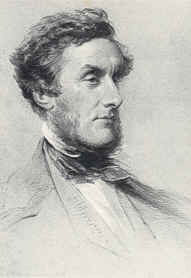If William Wilberforce was the man who effected the most social change in the first half of 18th century Britain, Anthony Ashley-Cooper was one who did it in the second half.
Better know as Lord Shaftesbury, he was a Brit in the mid-late 1800’s who took advantage of his aristocratic and political status to work for 60 years for the underprivileged of London, basically because he believed that God loved the people whom He had created with dignity, and was concerned for the eternity of all people. In the awful conditions for the working class in Victorian England, through his efforts child labor was eliminated, coal mining conditions were regulated, schools were set up for street kids, and a number of other reforms were passed and helping organizations were established.
The best book to get to him is Georgina Battiscombe’s authoritative biography, simply titled “Shaftesbury”, and it’s from reading that that I was able to come up with this list.
Want to do some good? Here’s how we can do it or the long haul.
10 Life Lessons from Lord Shaftesbury
- Journal– Shaftesbury benefited in primarily two ways from journaling irregularly. Firstly, it enabled an outlet for his depression. Secondly, it allowed him a release for the negative feelings that he had for people and the stress of difficult situations. Thus, he was able to be calm and collected during speeches and public statements.
- Fight for the poor, oppressed and underprivileged– Although Shaftesbury was not from a poor background, he saw the image of God in each person and more importantly the eternal importance of their soul. This led him to a lifelong fight against unjust conditions and poverty.
- Personally visit your causes– Throughout his life Shaftesbury experienced firsthand the lunatic asylums, slum conditions of various urban centers of England, factories employing children, women and men, and even descended a coal shaft to the underground coal mines. Seeing these conditions personally fueled his fire to do something about them, as well as it gave him the illustrations that he used in speeches and writing to prick the consciences of others and inspire them to action.
- Believe in God’s sovereignty– “He could not have continued the struggle had he not been convinced that an omnipotent God was on his side. For him religion was a stabilizing and upholding force, soothing, strong, unalterable, in his own Evangelical terminology, the Rock of Ages. ‘I will spread it out again before the Lord,’ was one of his favorite texts; time and again, when distressed and disturbed almost beyond bearing, he found comfort and support in prayer.”
- Marry wisely– Shaftesbury held out for love, character, and a soulmate to be found in his wife. Throughout his life Minny was to be a balance to his darkness, a listening ear, loving arms, and a source of joy and happiness. There is no doubt that his own temperament would have overwhelmed him were it not for this woman with whom he was able to share the pressures of life.
- Surround yourself with intimate friends– This lesson is learned from the contrary example of Shaftesbury. Although he had several important mentors, he did not have any close peers. Thus the release of his depression was relegated to the very solitary act of journaling, which was good as a vent but not helpful towards victory and hopefulness. Also, Shaftesbury could have used the insight of others to point out his blind spots, for example when it came to financial management and overwork.
- Escape to the country– The benefit of several trips to Scotland (annually) and Europe went a long way for Shaftesbury’s mental and physical health. The break from the pressures of public life combined with the reminder of God’s glory through the inspiration of nature was a necessary combination to enable him to fight for those with whom he lived in the dark city.
- Exercise control in speech– Although he might not have felt so at the moment, being calm and controlled in public speech and conversation enabled Shaftesbury to be heard above those whose emotions in their words carried away the better part of wisdom.
- Persevere– Though not all of them, many of the reforms that Shaftesbury sought took decades to come to pass, often because he was the only consistent voice for unpopular causes. As with any large scale reform, never of the long-term effects were not seen by him in his lifetime. However, because he persevered in the causes that he saw as being important to God, he stuck with it against immense odds and eventually public sentiment and laws followed his efforts.
- Don’t retire– Shaftesbury never really slowed down, even while his body was naturally getting weaker due to age. Because of this, he was able to make even more impact for the sake of those who were not able to fight for themselves. He died at age 85, in the confidence that he had spent his life well and for the purposes of God.

